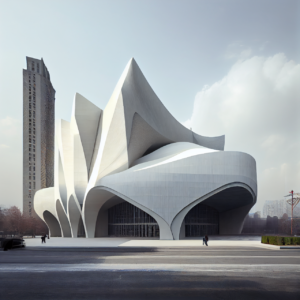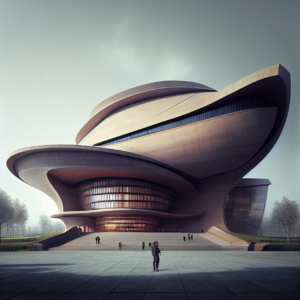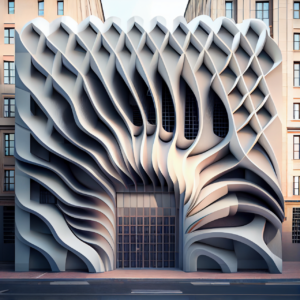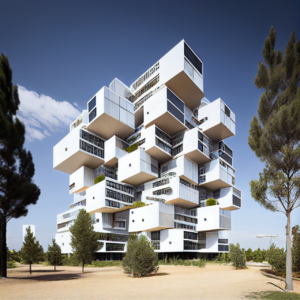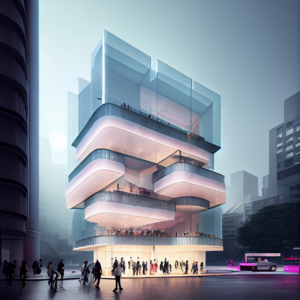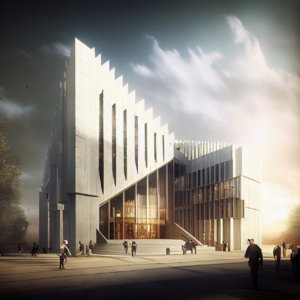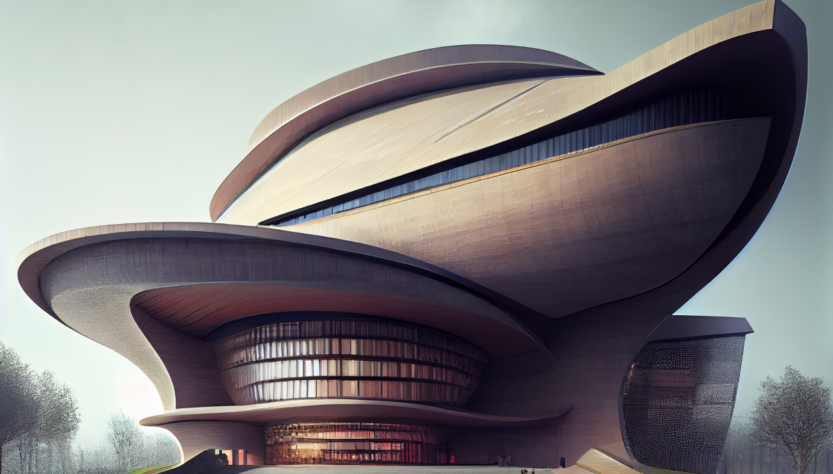Architect & Graphic Designer (Art Director)
In the future, artificial intelligence (AI) has the potential to play an important role in modeling organic architectural forms and promoting sustainable designs. AI could optimize building designs for energy efficiency, durability, and aesthetic appeal by processing massive quantities of information. Furthermore, AI can assist architects in developing futuristic concepts that push the boundaries of traditional design. Here are some of the ways AI can influence the modeling of organic architectural forms and sustainable designs, as well as assist architects in evolving futuristic concepts.
Forms of Biodynamic Architecture
Organic architectural forms have grown in popularity in recent years as architects strive to create structures that blend in with their surroundings. Organic forms, on the other hand, can be difficult to design because they frequently require complex geometries and intricate details. AI can assist architects in overcoming these challenges by providing powerful modeling tools that can simulate and optimize complex geometries. AI algorithms, for example, can be used to analyze natural forms like leaves and branches and extract major design concepts that are useful when it comes to building designs. Furthermore, artificial intelligence can optimize building structures for durability and energy efficiency while also ensuring that they meet the aesthetic requirements of organic forms.
Sustainable Design
As society seeks to reduce its carbon footprint and mitigate the effects of climate change, sustainability has become an important consideration in the architecture and construction industries. By optimizing building designs for energy efficiency, reducing waste, and utilizing renewable materials, AI can play a critical role in promoting sustainable designs. Artificial intelligence algorithms can simulate building energy consumption and identify areas where energy efficiency can be improved. Furthermore, AI can optimize material use by reducing waste and encouraging the use of sustainable materials such as bamboo, hemp, and straw. AI can also monitor building performance and detect issues such as energy waste and water leakage in real-time, resulting in significant cost savings and lower carbon emissions.
Futuristic Ideas
AI can assist architects in developing futuristic concepts that push the limits of traditional design. AI can identify emerging trends and design concepts that are likely to shape the future of architecture by analyzing massive amounts of data. Furthermore, AI can simulate and optimize designs, allowing architects to explore and refine their concepts. Building digital twins can also be created using AI, allowing architects to test and refine designs in a virtual environment. This can assist architects in getting around the limitations of traditional design tools and creating truly innovative and futuristic concepts.
Challenges and Threats
Despite the numerous advantages of AI in modeling organic architectural forms, encouraging sustainable designs, and generating futuristic concepts, there are a number of challenges and risks to be aware of. One significant challenge is the requirement for architects to acquire new skills and expertise to use AI tools effectively. As artificial intelligence becomes more integrated into the design process, architects will need to learn new skills in data analysis, programming, and machine learning. This could lead to a skills gap, impeding the industry’s adoption of AI. Another issue is that AI has the potential to perpetuate existing biases and inequalities in the industry. AI algorithms can continue to propagate and even amplify existing biases and inequalities if they are trained on biased data. This is particularly concerning in the context of sustainable design, where bias and imbalances have historically been prevalent.
